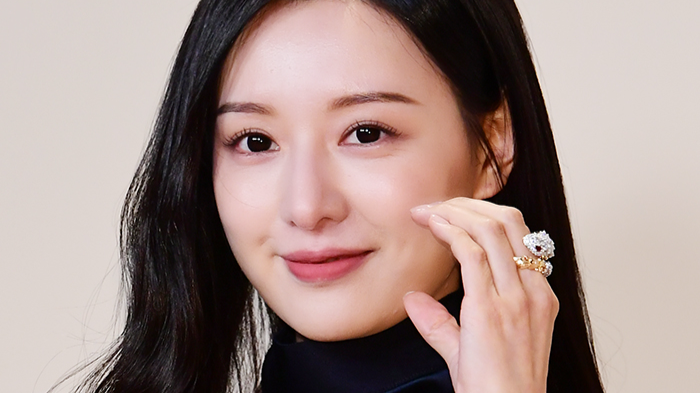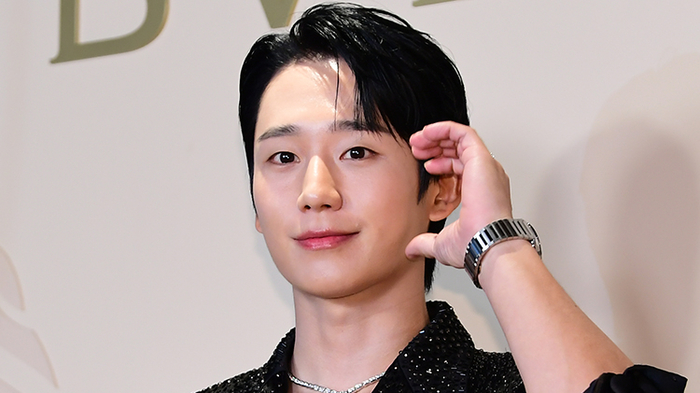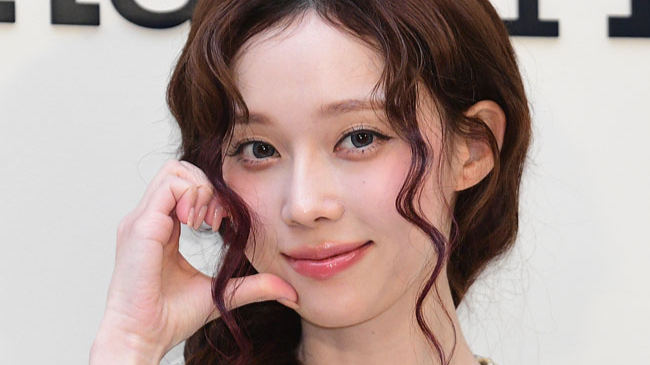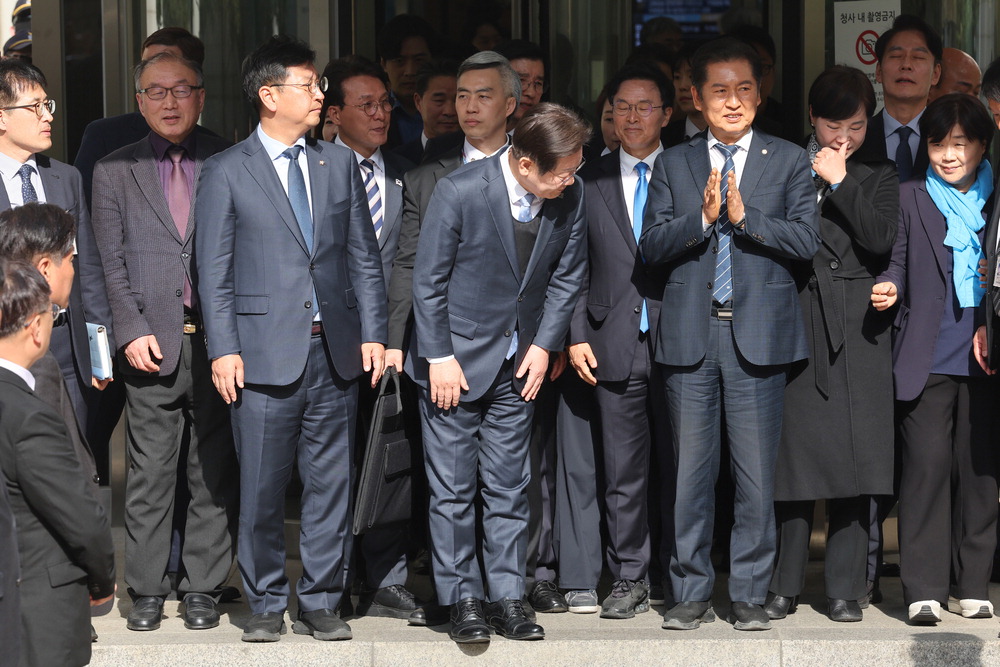
Lee kept his eyes closed with his back leaning on a chair while the presiding judge, Choi Eun-jung, read the summary of the ruling. Later, when the order was read out, he bowed his head toward the court, and only after all the judges left, he got up from his seat and shook hands with the lawyers and greeted them.
In this trial, many predicted that Lee's remarks regarding the late former Seongnam Urban Development Corporation's development director Kim Moon-ki would be a key issue. The fact that the court asked for more details of the indictment and the prosecution changed the indictment by clearly specifying which of Lee's four broadcast remarks corresponded to the three types of indictments also added to this observation.
On the other hand, there were many opinions that Baekhyun-dong's remarks were likely to remain guilty as the court did not take issue much in the second trial and there was no new testimony to overturn the first trial's judgment.
However, analysts say that the second trial court's acquittal of Baekhyun-dong's remarks is the result of interpreting the provisions of the Public Official Election Act more strictly than the first trial. In particular, the court divided representative Lee's remarks in detail and carefully examined whether each could be interpreted to the purpose stated in the indictment and whether the crime was established.
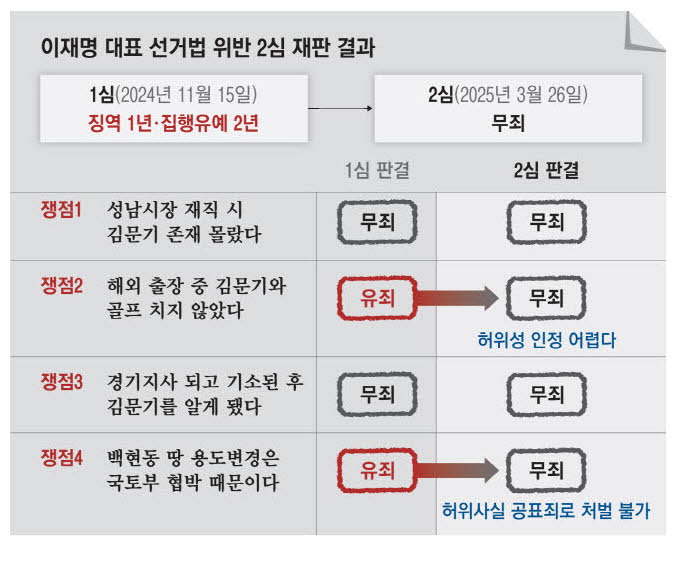
In order for a crime of publicizing false information under the Public Official Election Act to be established, the remarks must be about facts, not just opinions, and the contents must also be related to education, career, property, and behavior that are subject to the law. In the ruling, the second trial court refused to accept the prosecution's claim on most of the allegations, saying they were "not remarks about actions."
Regarding Baekhyun-dong, the first trial judged CEO Lee's entire remarks in the parliamentary audit as a single indictment, but the second trial divided it into two parts: "I inevitably changed it in response to the demand from the Ministry of Land, Infrastructure and Transport," and "The Ministry of Land, Infrastructure and Transport threatened to take issue with dereliction of duty." Since then, it has been judged that it is difficult to interpret the first remarks with the same purpose as the prosecution and to view them as false because they are close to expressing opinions. Regarding the second remarks, he also judged, "The remarks that 'I was threatened to make a problem with dereliction of duty' may have been somewhat exaggerated, but it is difficult to view them as false." Representative Lee's claim that the subject of "threat" is the Ministry of Land, Infrastructure and Transport was also accepted.
All of Kim Moon-ki's remarks were also overturned to innocence. The court judged representative Lee's four remarks by dividing them into three parts of the indictment in connection with his remarks to the effect that he "did not know about the existence of Kim Moon-ki." They include "I didn't know Kim Moon-ki when I was mayor of Seongnam," "I didn't play golf with Kim Moon-ki," and "I only knew Kim Moon-ki after he was indicted for violating the Public Official Election Act when he was governor."
The court judged that all of these remarks were not subject to punishment because they were about subjective perceptions, not actions. The prosecution judged that CEO Lee intentionally denied his communication with Kim, a working-level official in the development project, when he was suspected of misconduct in Daejang-dong. However, the court judged that the subjective perception, not the defendant's actions, could not be concluded to be false and could not be viewed as a statement denying the act of communication itself.
Regarding the so-called "golf remarks," which were found guilty in the first trial, he also said, "It cannot be concluded to the effect that I did not play golf with Kim Moon-ki, and it is only part of the total answer." Regarding the photo taken during a business trip to Australia with Kim, he also said, "It is difficult to see it as evidence that 10 people played golf as part of a group photo taken together," adding, "It may be a fabricated data that took away some of the original photo."
[Reporter Kang Minwoo]










